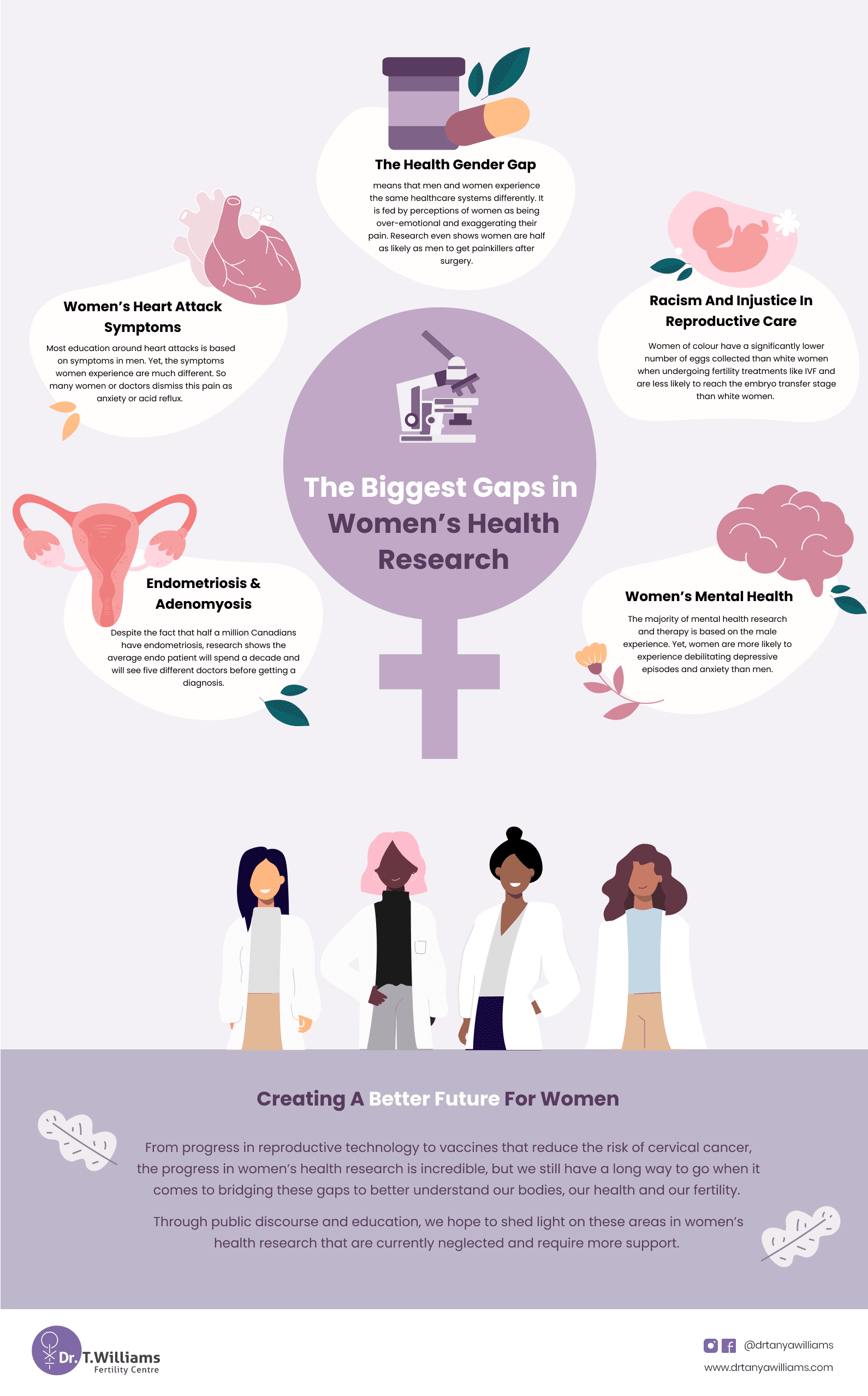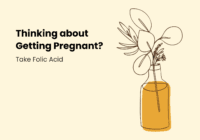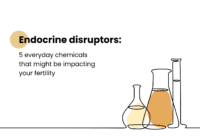
Have you ever wondered how sex and gender impacts health and wellness? Similar to how men and women often navigate the workplace differently due to gender bias, there is also a similar gender bias when it comes to navigating the healthcare system, with significant gaps in women’s health research.
Our current healthcare system, including various health research projects and treatment options, fails to consider the physiological and social differences between men and women. Commonly referred to as “the health gap”, men and women typically experience the same healthcare systems differently. Unfortunately, the health gap is also wider for women of colour, women who live in rural communities or women who may be struggling with finances or other life circumstances.
This guide will shed some light on the prominent gaps in women’s health research. First, you’ll learn how many specific ailments that women face are often misunderstood or under-researched. Second, you will learn how prominent gaps in women’s healthcare are putting millions of women’s lives and wellbeing in jeopardy.
In an article for Grazia, women’s health specialist Dr. Larisa Corda, said “ the health gender gap is fed by perceptions of women as being over-emotional and exaggerating the extent of their pain and suffering.” In fact, research shows women are half as likely as men to get painkillers after surgery.
Women’s Health and Heart Attack Symptoms
Heart disease is one of the leading causes of death for women. Yet, a lot of people do not know that men’s and women’s heart attack symptoms are not the same.
We’re often taught to be cautious of any heart attack signs. For example, sudden chest pain and neck pain, shortness of breath, or discomfort in one or both arms. However, women tend to experience heart attacks differently than men. Women are more likely to experience shortness of breath, pressure in the lower chest or upper abdomen, dizziness, fainting, upper back pressure or extreme fatigue.
Since these symptoms are much less severe than what they previously thought a heart attack might feel like, many women or doctors dismiss this pain as anxiety or acid reflux. This highlights the need for more women-focused research in core health specialties and raising awareness to help prevent or mitigate symptoms of common health issues for women.
Endometriosis & Adenomyosis
When women’s pain is perceived as an over-exaggeration, it makes it much more difficult for women to be treated properly. This is especially true when it comes to pain related to women’s menstrual cycles.
For example, 10 percent of women have endometriosis. This is a painful disorder when cells similar to the uterine tissue are found in other parts of the body. Studies also show that 30 – 40 percent of women that experience infertility also have endometriosis. Half a million Canadians have endometriosis. However, research shows the average endo patient will spend an average of a decade and see five different doctors before getting a diagnosis.
Many women report having severe and chronic pain that impacts all areas of their lives. While endometriosis can be better treated when it’s caught quickly, women aren’t met with a diagnosis and effective treatment plans fast enough. This means that the disease spreads and often affects women’s fertility. Adenomyosis, is another painful benign disease similar to endometriosis. This is when the inner lining of the uterus is found in the uterine muscle. It is also often dismissed by doctors or not properly treated. In fact, the amount of research dollars spent on investigating these diseases pales in comparison to money spent on research for diseases classically found in men.
Women’s Mental Health
Now, more people openly talk about the importance of proper mental healthcare for all. Therefore, it’s essential to recognize the gender differences in mental health and mental illness. According to the World Health Organization, women are more likely to experience debilitating depressive episodes and anxiety than men.
More recently, in the context of the COVID-19 pandemic, women reported more symptoms consistent with moderate/severe generalized anxiety disorder than men. Yet, the majority of research on mental health and therapy is based on the male experience. We need to develop novel approaches to mental health treatment that account for the unique lived experiences of women and truly help bridge the gender gap in mental health research.
Racism and Injustice in Reproductive Care
Racial injustice within sexual reproductive care often highlights broader social problems. However, the health gap in recent maternal mortality data is particularly alarming. A recent study found black mothers in the United States have a much higher maternal mortality rate than white mothers. It also found that they are four times more likely to die from life-threatening pregnancy complications. Also, black mothers are twice as likely to deliver prematurely than white women.
Meanwhile, research shows that a woman’s ethnicity even plays a role in fertility treatment options. One study by the University of Nottingham found that South Asian Bangladeshi, Black African, and Middle Eastern women, have a significantly lower number of eggs collected than white British women. Additionally, British white women were also more likely to reach the embryo transfer stage than the first cohort of women. Overall, more research needs to be done. Namely, on why this inequality in reproductive and gynecological care is happening and how we can improve outcomes in the future.
Creating a Better Future for Women
These gaps in women’s health can be discouraging. However, the power of education, research and advocacy has helped produce positive outcomes for many health conditions and social issues. If you want to learn more about how these health gaps might be impacting your fertility and wellbeing, download our patient referral form for a personalized consultation with our team.
Discover more related blogs from Dr. Tanya Williams Fertility Centre:
Gender Bias in Medical Research: The Missing Other Half of Medicine
The Hidden Struggles of Black Women with Infertility: Three Women’s Stories






